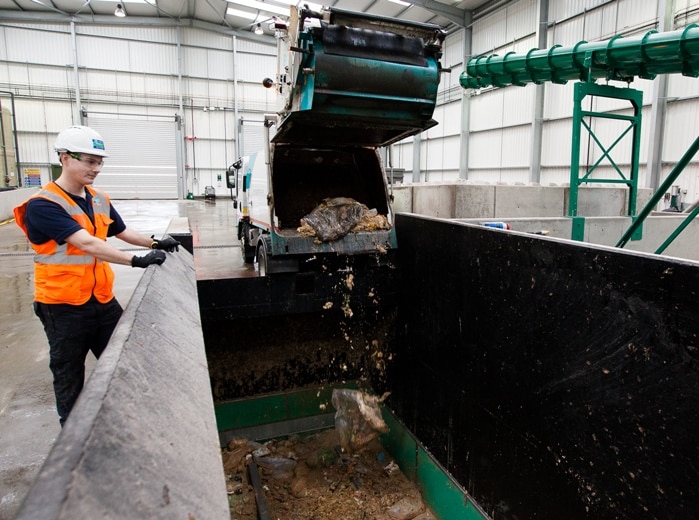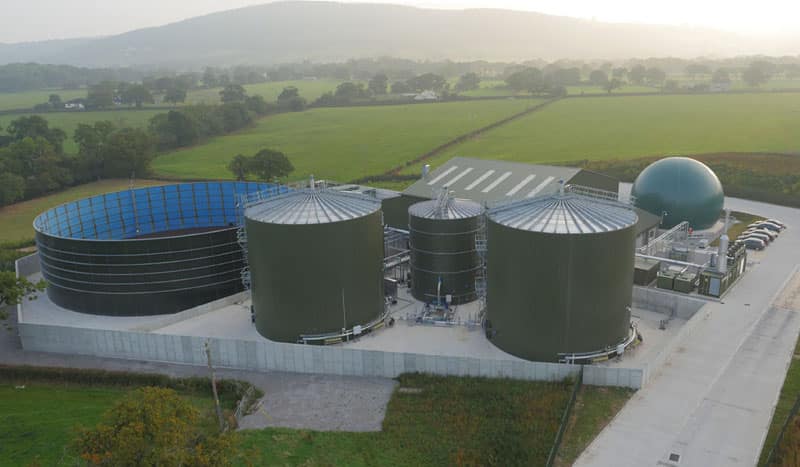Though there have been substantial efforts to reduce the amount of food waste produced within the UK, WRAP estimates that in 2018 approximately 9.5million tonnes was produced. The impact of this is two-fold. Sending food waste to landfill results in methane being emitted, and with a global warming potential 21 times that of carbon, methane emissions need to be avoided.
If all recoverable food waste was collected, AD could abate up to 1.3 million tonnes of carbon equivalent emissions each year. By re-directing this food waste from landfill, AD has the potential to return tonnes of natural fertiliser to soils. By returning nutrients and organic matter to soils, AD plays a part in creating a circular food system in which nutrients are managed in a sustainable fashion, whilst mitigating the impacts arising from the creation of artificial fertilisers.


Credit: Biogen Food Waste Plant
Sending food waste to AD requires separating food waste at the source which has been found to have other positive impacts on the environment. Through the separation of food waste, not only is it able to be processed for recovery but it leads to reductions of food waste as a whole as consumers become more aware of their waste and consumption. Separating food waste has also been linked to a reduction in the contamination of recycling collections (again thanks to a better understanding of waste), which saves councils money whilst facilitating better all-round recycling outcomes. Though Wales and Scotland already have some requirements for food waste to be collected separately, preparations are currently underway to introduce mandatory food waste collections across the UK by 2023.
